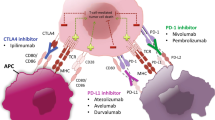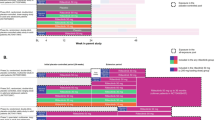Abstract
Although most cancer chemotherapy in children is administered parenterally, oral formulations are becoming increasingly available for use in patients as young as infants. Incentives for this approach include safety, flexibility, reduced financial cost, improved quality of life, and the potential for improved efficacy. The ability to deliver chemotherapy at home and apply schedules of administration that increase the agent’s efficacy because patients do not require hospitalisation or visits to the clinic renders oral chemotherapy particularly attractive. Obstacles to oral chemotherapy in paediatric patients include restrictions in dose size and schedule, uncertain or low bioavailability, adverse effects of malabsorption, and adherence (noncompliance and refusal to take oral chemotherapy). Techniques to overcome most of these limitations are available or can be developed, and lack of an oral formulation can be solved in many instances by the pharmaceutical industry. Future developments in oral chemotherapy should not be limited to adult patient applications.
Similar content being viewed by others
References
Bleyer WA. The U.S. pediatric cancer clinical trials programmes: international implications and the way forward. Eur J Cancer 1997; 33: 1439–47
Chessells JM, Leiper AD, Tiedemann K, et al. Oral methotrexate is as effective as intramuscular in maintenance therapy of acute lymphoblastic leukemia. Arch Dis Child 1987; 62: 172–6
Mahoney DH, Shuster J, Nitschke R, et al. Intermediate-dose methotrexate with intravenous mercaptopurine is superior to repetitive low-dose oral methotrexate and intravenous mercaptopurine for children with lower-risk B-lineage acute lymphoblastic leukemia: a Pediatric Oncology Group phase III trial. J Clin Oncol 1998; 16: 246–54
Lange BJ, Blatt J, Sather HN, et al. Randomized comparison of moderate-dose methotrexate infusions to oral methotrexate in children with intermediate risk acute lymphoblastic leukemia: a Children’s Cancer Group study. Med Pediatr Oncol 1996; 27: 15–20
Pui CH, Simone JV, Hancock ML, et al. Impact of three methods of treatment intensification on acute lymphoblastic leukemia in children: long-term results of St Jude Total Therapy Study X. Leukemia 1992; 6: 150–7
Balis FM, Holcenberg JS, Poplack DG, et al. Pharmacokinetics and pharmacodynamics of oral methotrexate and mercaptopurine in children with lower risk acute lymphoblastic leukemia: a joint Children’s Cancer Group and Pediatrie Oncology Branch study. Blood 1998; 92: 3569–77
Schmiegelow K, Glomstein A, Kristinsson J, et al. Impact of morning versus evening schedule for oral methotrexate and 6-mercaptopurine on relapse risk for children with acute lymphoblastic leukemia. Nordic Society for Pediatrie Hematology and Oncology. J Pediatr Hematol Oncol 1997; 1: 102–9
Close P, Burkey E, Kazak A, et al. A prospective, controlled evaluation of home chemotherapy for children with cancer. Pediatrics 1995; 95: 896–900
Nicolson SC, Betts ED, Jobes DR, et al. Comparison of oral and intramuscular preanesthetic medication for pediatrie inpatient surgery. Anesthesiology 1989; 71: 8–10
Madden T, Bleyer A, Hohneker J, et al. The pharmacokinetics of vinorelbine (Navelbine) in pediatrie cancer patients. Proc Am Soc Clin Oncol 1995; 14: A168
Lilleyman JS, Lennard I. Non-compliance with oral chemotherapy in childhood leukaemia. BMJ 1996; 313: 1219–20
Davies HA, Lilleyman JS. Compliance with oral chemotherapy in childhood lymphoblastic leukemia. Cancer Treat Rev 1995; 21: 93–103
Lau RC, Matsui D, Greenberg M, et al. Electronic measurement of compliance with mercaptopurine in pediatrie patients with acute lymphoblastic leukemia. Med Pediat Oncol 1998; 30: 85–90
MacDougall LG, McElligott SE, Rose E, et al. Pattern of 6-mercaptopurine urinary excretion in children with acute lymphoblastic leukemia: urinary assays as a measure of drug compliance. Ther Drug Monit 1992; 14: 371–5
Smith SD, Rosen D, Trueworthy RC, et al. A reliable method for evaluating drug compliance in children with cancer. Cancer 1979; 43: 169–73
Festa RS, Tamaroff MH, Chasalow F, et al. Therapeutic adherence to oral medication regimens by adolescents with cancer. I. Laboratory assessment. J Pediatr 1992; 120: 807–11
Tamaroff MH, Festa RS, Adesman AR, et al. Therapeutic adherence to oral medication regimens by adolescents with cancer. II. Clinical and psychologic correlates. J Pediatr 1992; 120: 813–7
Wright L, Woodcock JM, Scott R. Conditioning children when refusal of oral medication is life threatening. Pediatrics 1969; 44: 969–72
Babbitt RL, Parrish JM, Brierley PE, et al. Teaching develop-mentally disabled children with chronic illness to swallow prescribed capsules. J Dev Behav Pediatr 1991; 12: 229–35
Tebbi CK, Cummings KM, Zevon MA, et al. Compliance of pediatrie and adolescent cancer patients. Cancer 1986; 58: 1179–84
Klopovich PM, Trueworthy RC. Adherence to chemotherapy regimens among children with cancer. Top Clin Nurs 1985; 7: 19–25
Tebbi CK. Treatment compliance in childhood and adolescence. Cancer 1993; 71 Suppl. 10: 3441–9
Pelco LE, Kissel RC, Parrish JM, et al. Behavioral management of oral medication administration difficulties among children: a review of literature with case illustrations. J Dev Behav Pediatr 1987; 8: 90–6
Author information
Authors and Affiliations
Corresponding author
Rights and permissions
About this article
Cite this article
Bleyer, W.A., Danielson, M.G. Oral Cancer Chemotherapy in Paediatric Patients. Drugs 58 (Suppl 3), 133–140 (1999). https://doi.org/10.2165/00003495-199958003-00018
Published:
Issue Date:
DOI: https://doi.org/10.2165/00003495-199958003-00018




